
Mesut Ozil treatment proves Trevor Noah’s Fifa World Cup point about football masking racism towards immigrants
Germany star quits national team saying ‘I’m German when we win, but I’m an immigrant when we lose’, echoing Daily Show host’s thoughts on France squad
It won’t have been of any comfort to The Daily Show host Trevor Noah to see Mesut Ozil quit the Germany national team – but it may have provided a bit of vindication.
The South African comedian came under fire from French fans and even the country’s ambassador to the United States, Gerard Araud, after joking “Africa won the World Cup” last week.
Of the 23-man France squad that triumphed in Russia, 16 players have African heritage, and Noah quipped “they couldn’t get this suntan in the south of France” – something Araud countered was “the argument of the white supremacist”.
Noah gave a passionate defence of his remarks on a “Between the Scenes” segment of his late-night US television programme.
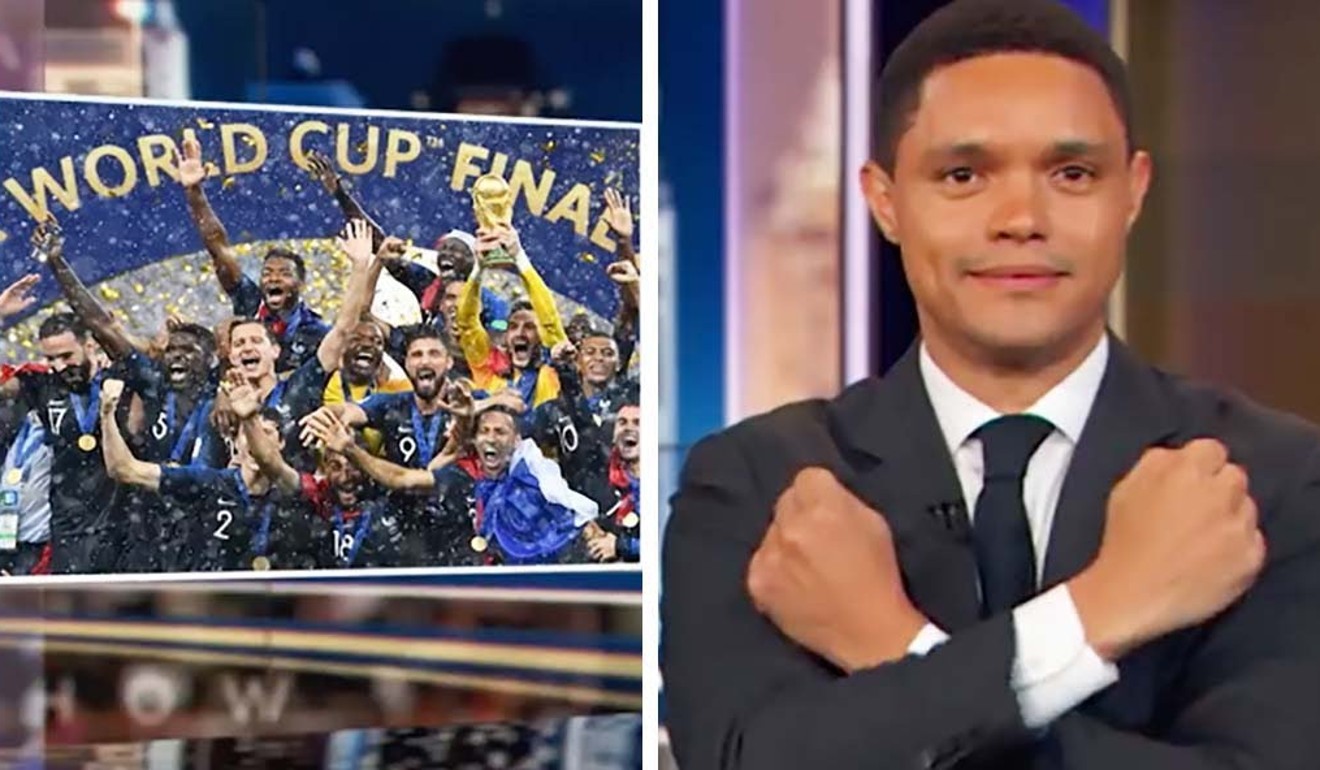
“This is what I find interesting, it’s like, when I read stories from Africa and I watch what politicians say about African migrants when they are unemployed, when they may commit a crime, or when they’re considered unsavoury, they are ‘African immigrants’,” Noah said.
“When their children go on to provide a World Cup victory for France, we should only refer to it as France.”
Whether Arsenal star Ozil saw Noah’s comments or not, his explosive four-page statement announcing his retirement from international football at the age of 29 contained similar sentiments.
“I am German when we win, but I’m an immigrant when we lose,” Ozil wrote in the statement, which he attached to a tweet. Noah picked up on it, pulling that particular quote out and accompanying it with a broken heart emoji.
France’s players and fans have been quick to insist it was a French team that won in Russia – all but three of the squad were born in the country, and the others emigrated there at a very young age.
But one player who was excluded from Didier Deschamps squad, Karim Benzema of Real Madrid, has previously expressed disillusion with his treatment in his country.
“If I score I’m French, if I don’t I’m an Arab,” said the French-born striker, who has Algerian roots.
Writing in an article on the Player’s Tribune website, Belgium and Manchester United striker Romelu Lukaku had the same feeling when reflecting on his early career.
“When things were going well, I was Lukaku the Belgian striker … when they weren’t going well, I was the Belgian striker of Congolese descent,” he wrote.
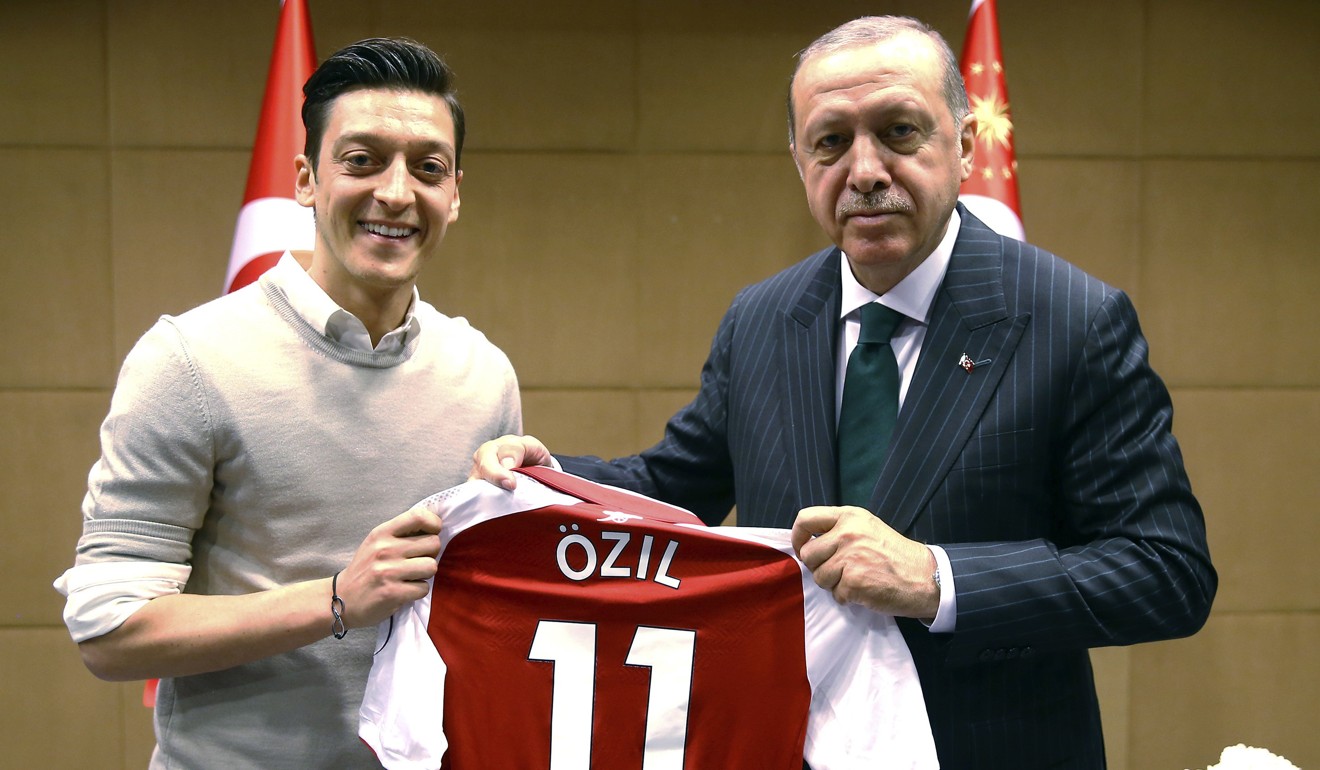
Ozil, a German-born descendant of Turkish immigrants, felt he had been subjected to “racism” in some of the criticism he received for posing for a picture with Turkish president Recep Tayyip Erdogan before the World Cup.
“If a newspaper or pundit finds fault in a game I play in, then I can accept this. But what I can’t accept are German media outlets repeatedly blaming my dual-heritage and a simple picture for a bad World Cup on behalf of an entire squad.
“This crosses a personal line that should never be crossed, as newspapers try to turn the nation of Germany against me,” wrote Ozil, who also blasted the German Football Federation for making him a “scapegoat” for defending champions Germany’s shock group-stage exit in Russia.
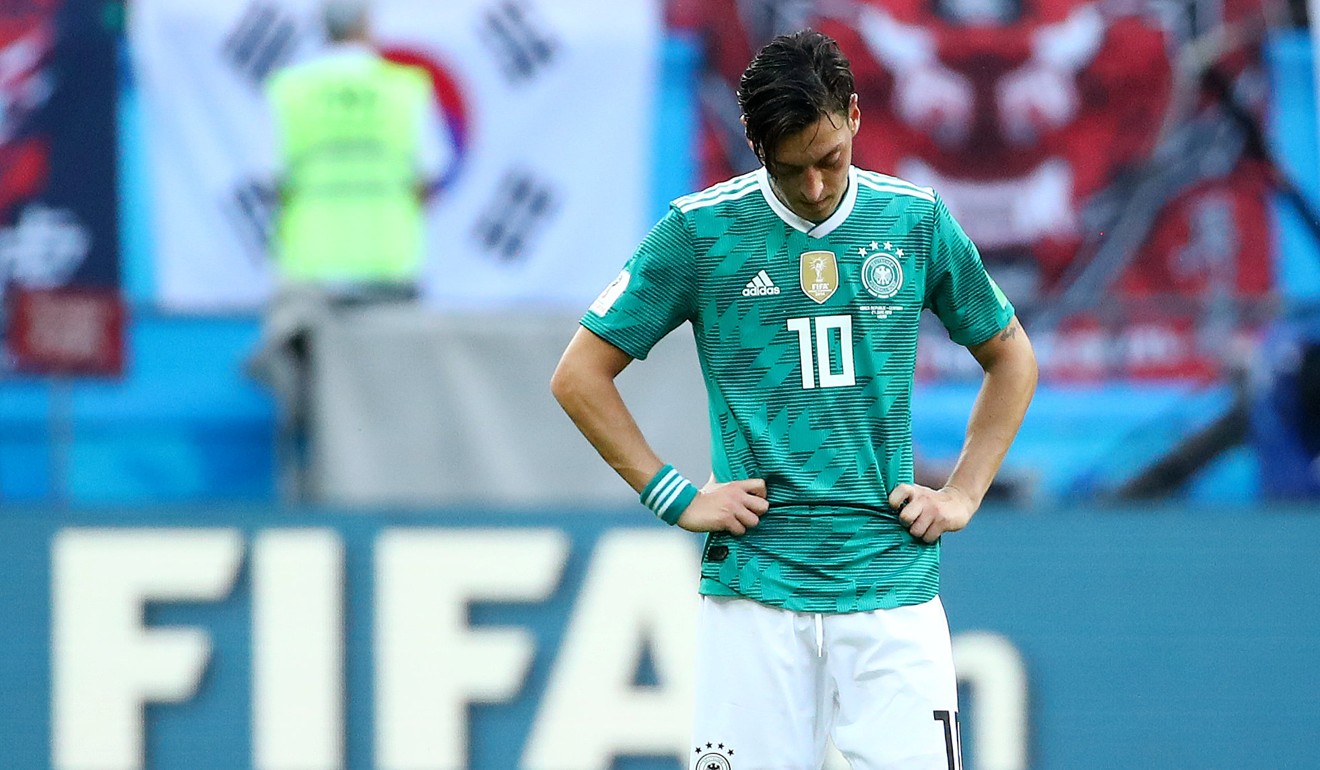
Ozil scored 23 goals in 92 games for Germany, with whom he won the 2014 World Cup in Brazil, but his angry departure has brought a mixed response.
“He had been playing s*** for years. He last won a tackle before the 2014 World Cup, and now he and his s**** performance hide behind this picture,” 1974 World Cup winner Uli Hoeness told German daily newspaper Bild, whose front page headline belittled Ozil’s “whining resignation”.
Justice minister Katarina Barley was a little more sympathetic though.
“It is an alarm signal when a great German footballer such as Mesut Ozil feels unwanted in his country because of racism and not represented by the DFB,” she tweeted.
The DFB released a statement saying it was “very grateful” to Ozil for his contributions and that it regretted that he “felt he wasn’t sufficiently protected as a target of racist slogans”.
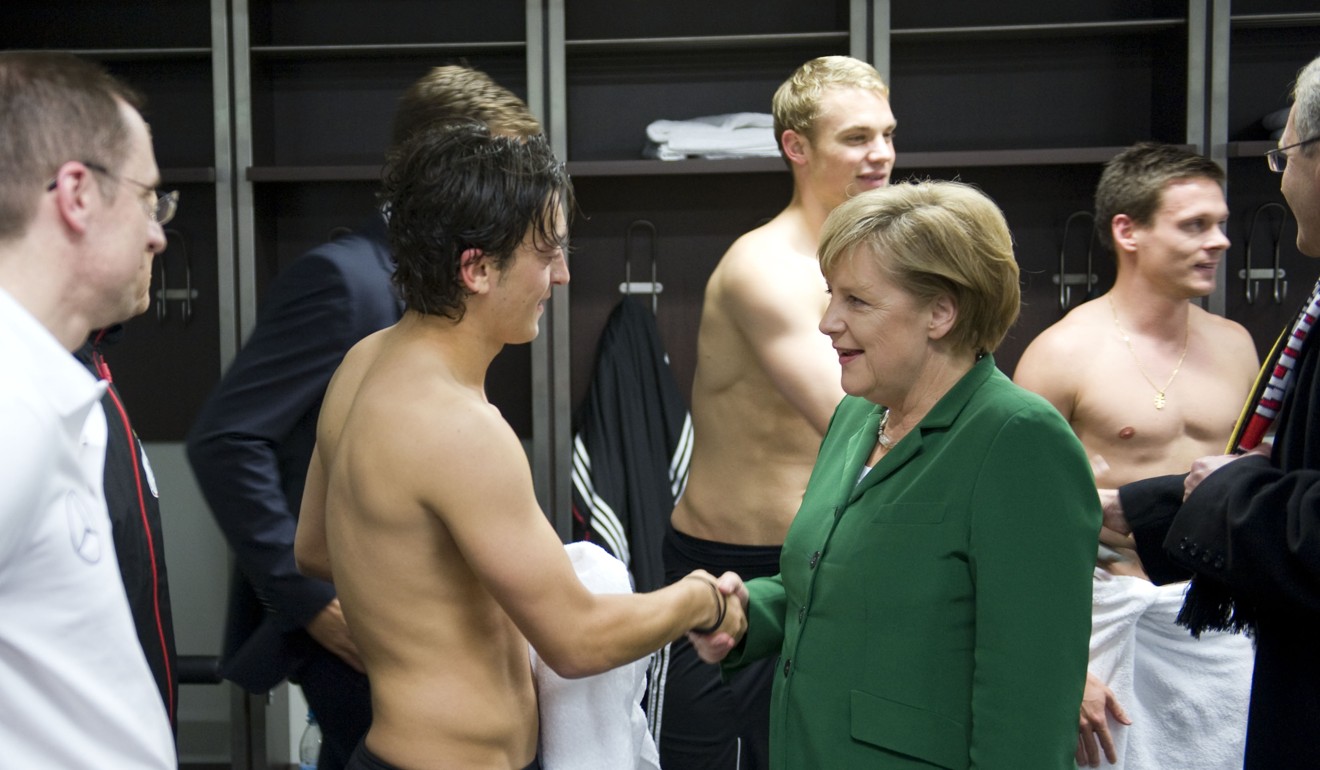
The statement said the DFB “very clearly rejects” being linked with racism, but added that asking questions over the Erdogan picture were justified.
“The DFB has been strongly committed for many years to working for integration in Germany,” the statement said.
Sadly, Ozil’s exit from the national team is symbolic of the failed integration of many Muslim immigrants into European countries.
Ozil’s feelings are no doubt shared by many people with immigrant backgrounds, and this regrettable affair could set things back further on that front in Germany.
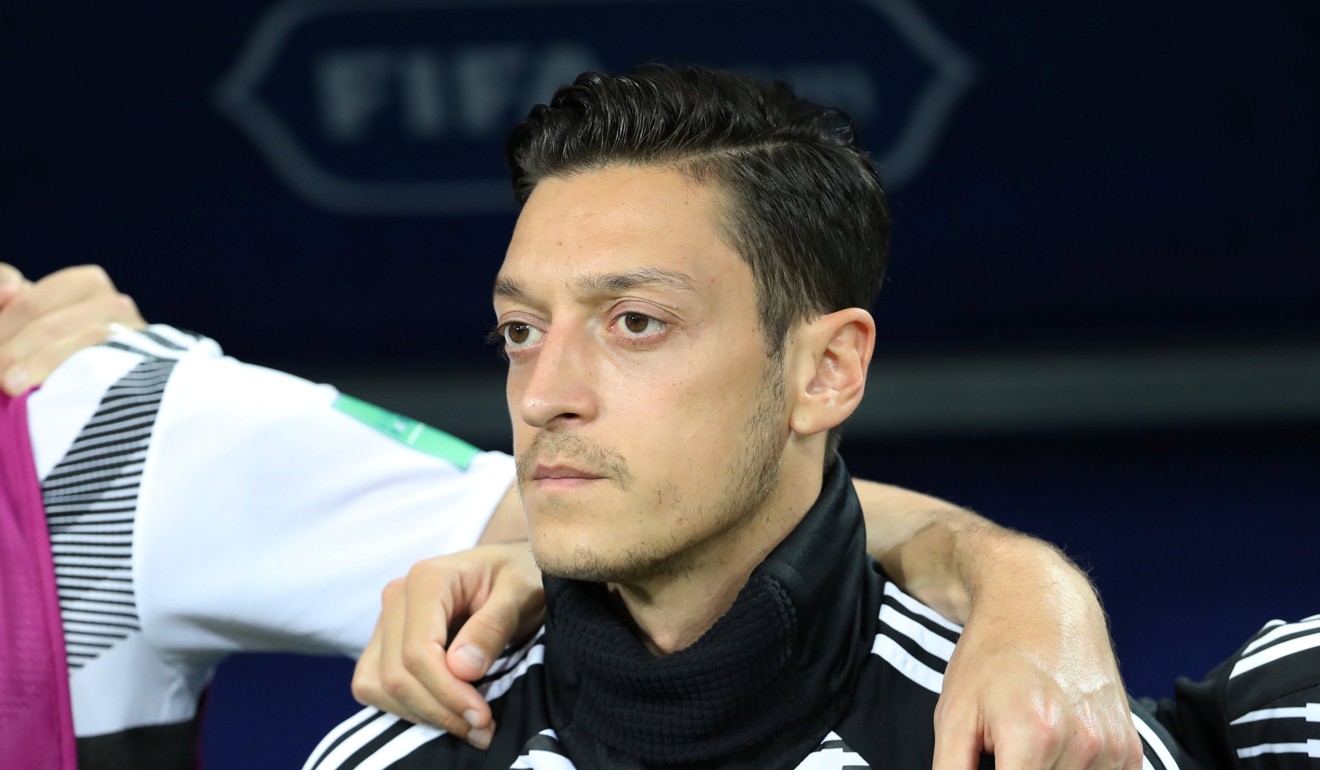
“I don’t think that the case of a multimillionaire living and working in Britain says much about integration in Germany,” foreign minister Heiko Maas told reporters in Berlin, however.
“And in any case, the truth is on the pitch. The fact that the Germans were knocked out of the World Cup has little to do Mr Ozil having his picture taken with Erdogan,” he added.
“I think everyone involved in this case should reflect. I see few people who in my perception have behaved more or less right in this case.”
Whoever is to blame, what is clear is that while football – and in particular the World Cup – can briefly unite societies, there are still divisions that aren’t going away any time soon.

